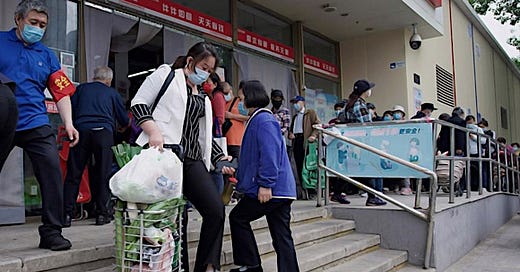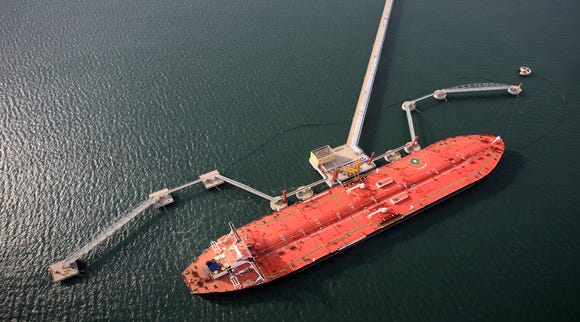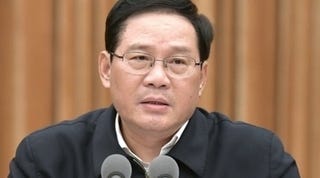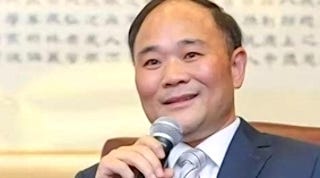Omicron resurging across the country has prompted lockdowns far and wide. Harsh containment in Shanghai and the Yangtze River Delta has been headlined worldwide, along with disrupted inland truck transport and log-jammed container ships along the east coast. Firms are struggling with raw materials shortages and tight pandemic controls on workers.
Beijing is bracing for similar travails. Supermarket shelves are empty(ing) and traffic is seizing up as cars queue to leave the city. Citizens fear that despite Shanghai’s chaos, the city has no plan B and zero-COVID will be enforced.
Suspended production and slack domestic demand drove import growth into negative territory in March. Top-level edicts have called for freeing up domestic transport, but not all restrictions have been lifted: localities prioritise zero-COVID to protect local safety—and their own backs. Exports are unlikely to rebound before Q2; orders are being snapped up by ASEAN competitors.
Pressured by both lockdowns and the invasion of Ukraine, the economy grew by 4.8 percent in Q1, below the 'some 5.5' percent target. Financial agencies responded by attempting to calm investor jitters, while the central bank held steady with moderate easing. Beijing again allowed localities to pump up real estate spending.
The old GDP-boosting fixed asset investment tactic is back in favour, attests the Xi-chaired Central Financial and Economic Commission. Analysts, however, point to dwindling available projects, and continued pressure on local officials to rein in debt amid persistent doubt that infrastructure investment can buffer the economic headwinds.
Chronic inter-regional competition and protectionism, baked into cadre KPIs, are frustrating a nationwide pandemic response. Another attempt at national coordination: 'Opinions on further improving the unified national market' emerged 10 April. Under the directive, local economic, administrative and market standards are set to be consolidated and top companies encouraged to have a national presence.
Ballooning commodity prices due to the war in Ukraine saw coal, oil and gas imports drop by 40, 14 and 9 percent y-o-y respectively in March. Lower coal imports will be offset by ramped-up domestic production, with Premier Li Keqiang ordering an extra 300 million tonnes capacity to be brought online by year’s end. Demand growth for oil and gas imports may wane marginally due to high prices. Yet, dependence on foreign sources, say experts, means the PRC will still outlay an extra US$100 bn on crude oil imports in 2022 compared to 2021.
New energy vehicle sales keep rising, but surging raw material prices are a real and present threat. Charging stations face dramatic profitability shortfalls. Battery swapping is resurging as a viable solution.
On the data economy front, ever more industries vie for the data element (name, address, gender etc.) market. Regulators struggle to keep up with the ever-evolving needs of investors and customers in this field.
In rural areas, central messaging gives little hint of pandemic controls easing. In places with serious outbreaks, farmers are totally banned from working their fields. Amid COVID-19 confusion in other ag strongholds, calls are strong to ensure winter wheat in Henan, spring planting in the northeast and transplanting rice in the south. The COVID ups and downs have been a blow to rural development overall. Public and private investment—the key input to boost rural industrial growth and help ag production—are both slowing.
New top-level design for personal pensions has, at last, kickstarted the 'three-pillar' pension system, after three decades of dithering.
pillar 1 (state-run basic pensions) now covers over a billion citizens; threatened by shortfalls, they also lack cross-regional flexibility
pillar 2 (employee annuities) covers only 72 million people
pillar 3 (commercial personal pensions): underwhelming results are reported for discretionary pension products piloted to test the water
But now with a focus on building the critical third, commercial pillar, more options will be offered to a rapidly ageing society. It will potentially transform savings habits, delivering steady capital into the financial market long-term.
job opportunities
We are currently seeking a lead analyst/analyst for our technology, innovation and energy portfolio. We also welcome internship applications on a rolling basis. If you want to work at the leading edge of policy analysis on China, please join our team! See our careers page or contact hr@policycn.com for information.
lexicon
unpacking current policy-speak and keeping readers up-to-date with policy concepts that are reshaping the debate
five strategic favourable conditions 五个战略性有利条件 wǔ gě zhànlüèxìng yǒulì tiáojiàn
Addressing the 2022 Two Sessions, General Secretary Xi identified five essential conditions for the PRC’s development, including
Party leadership
advantages due to Socialism with Chinese Characteristics
material base built up by extended rapid development
long term social stability
the strength of confidence
At the height of Shanghai’s COVID outbreak, highlighting long-term social stability 'Party thought' vehicle Qiushi reiterated Xi’s point that development presupposes security. The base of stability, moreover, is people’s sense of gain, happiness, and security. Beijing’s triumph over COVID-19 is featured in the article as a social stability dividend, in stark contrast to 'Western chaos'. Beijing’s zero-tolerance policy thus figures as a guarantee of long-term development and popular well-being—and is not to be relaxed.
featured analysis
Introducing our new 'policy shifts', delivered twice-weekly to clients.
Snapshots of new policy trends—often missed by mainstream media.
keeping the lights on for 1.4 billion
China Policy and Asia Society Australia team up to focus on China’s shifting energy security equation as it transitions away from fossil fuels towards net zero by 2060. We examine the changing energy mix and key players in the field, both domestically and internationally.
Clean energy will likely remain a globally interdependent field over the next few decades. Trends in energy trade with China, shaped by carbon neutrality, energy security and import diversification goals, are the focus of our sixth China Executive Briefing paper. full post open access →
april policy movers
policy professionals in and out of the establishment
Li Qiang 李强 | Shanghai Party Secretary
Allied with Xi Jinping since 2004, Li is expected to advance to the Politburo Standing Committee at the 20th National Party Congress (Nov 2022). On his watch, before the recent outbreak, Shanghai had won kudos as the top performer in controlling outbreaks. International flights to surrounding regions were diverted to Shanghai, while the city instituted 'precision prevention', only constraining communities with positive cases. Other localities aspired to this model, containing COVID at minimum cost. Failure of the model with Shanghai’s breakout is a potentially fatal blot on Li’s record.
'Chief of staff' to Xi in the latter’s Zhejiang Party Secretary days, Li was sent by the Party to study at Hong Kong Polytechnic University. Before promotion to Shanghai Party Secretary in 2017, he spent a year as Jiangsu Party Secretary.
He Dengcai 贺登才 | China Federation of Logistics and Purchasing vice president
Making up some 90 percent of total logistics, industrial goods shipment is an anchor of stability. Like urban water and power supply systems, it is well described as an essential service, not least in pandemics. In the March 2022 outbreaks in Jilin and Shanghai, transport controls tightened as fearful localities hastily cut off critical cargo flows. From 1 March to 9 April, the national road freight flow fell by 7 percent; Shanghai’s by 20 percent. With road shipments making up three-quarters of total cargo transport and the Yangtze River Delta a massive production base home to a legion of SMEs, road blockages cutting off raw materials and leaving finished products stockpiled led to paralysis. The state, argues Vice President He, should create green channels to keep critical energy, raw materials and industrial goods pumping, and guarantee provision of today’s essentials: nucleic acid tests, food, accommodation, toilets and showers for logistics workers.
Building his career in municipal and provincial material circulation agencies, in 2001, He joined the China Federation of Logistics and Purchasing, which coordinates, streamlines and reports on the PRC logistics sector.
Li Shufu 李书福 | Zhejiang Geely Holding Group founder and chairman
Government–industry cooperation is needed to scale up the NEV (new energy vehicle) battery swapping system, which will prove to be more time-efficient and less costly than plug-in EV charging, recommends Li. Specifically, Li called for more effort from government and industry to
standardise vehicle batteries and battery ports
make battery-swapping stations more interoperable
bring more clarity to regulations on station construction, FCVs and battery quality
A verification system is needed, notes Li, for cars with swappable batteries: vehicle and battery may be verified separately, with traceability for each component. This can help customise services for this type of vehicle, such as separate insurance coverages for the vehicle and the battery.
Acclaimed self-made entrepreneur with a history of close relations with top CCP leaders, Li was delegated to the 10th, 11th and 12th Chinese People's Political Consultative Conference and the 13th National People’s Congress. Li holds degrees from Yanshan University and the Harbin Institute of Technology.
policy ticker highlights
gems from our feed of policy releases and domestic debate
trade policy
C¥100 bn in refinancing loans to be rolled out for logistics firms
21st Century Business Herald, Caixin | 18 April
context: Stringent COVID-19 lockdowns have laid bare the weaknesses in China’s logistics system, putting local protectionism, market fragmentation and disconnection of inter-regional rules in the spotlight. Building a unified national market, not least for the logistics industry, will require overcoming deep-rooted regional competition resulting from the 'political tournament system'.
macroeconomy
pessimism over infrastructure outlook
Jiemian | 11 April
context: Beijing has signalled growing concern over the economy. So far in 2022, monetary easing has been minor with more expectations placed on fiscal spending to boost the economy. With the COVID resurgence, weaker than hoped for Q1 growth will put added pressure for the rest of the year on meeting the aggressive growth target of 'around 5.5 percent'.
governance
calling for a unified and open national market
State Council | 10 April
context: Local protectionism, regionalism, and unnecessary repeated construction are chronic problems embedded in China’s economy. Zhou Li’an 周黎安 Peking University’s Guanghua School of Management professor maintains these problems result from the political tournament system and can be overcome by domestic market integration and market globalisation. This document aims to implement this solution and push forward governance modernisation, including law-based governance, predictable market, factor marketisation, and 'delegated control and service' reforms.
energy and environment
more coal to shore up energy supply and stabilise prices
Yicai | 10 April
context: Beijing ramped up coal production to end the 2021 power crisis. Now, as rising global fuel prices put stress on the country’s power market, authorities are again turning to coal to relieve price and supply pressures in the energy market.
science and innovation
NEV market penetration rising despite higher car prices
21st Century Business Herald | 18 April
context: Lithium prices rose nearly 74 percent from 1 Jan to 18 Mar 2022, imposing huge cost pressures on the NEV (new energy vehicle) industry via battery price hikes. The industry is also about to face subsidy withdrawal.
agriculture
maintaining strict rural pandemic controls
Ministry of Agriculture | 22 April
context: Despite limited 'relaxation', farmers and other players along ag supply chains are still facing tedious administrative procedures during the critical spring planting window. Farming has to be completely outsourced in places with the strictest quarantine measures.
society
personal pension system finally kicks off
Caixin, China News | 22 April
context: The basic pension will not be enough to secure aged care since it faces deficits and lacks cross-regional flexibility for collecting benefits while 35 percent of the population live outside of their hukou-registered place of residence. Top-level design for personal pensions takes a huge leap from various commercial pension product pilots since 2018. Considering the high savings rate, the pension investment sector could grow tremendously, especially benefiting wealth management intermediaries.
China Policy is a Beijing-based research and advisory company. Supporting our clients at multiple levels, from in-house research teams to execs and boards, we help them anticipate, understand and respond to China’s changing domestic policy and geopolitical environment. Contact us for more information on our publications and services.









